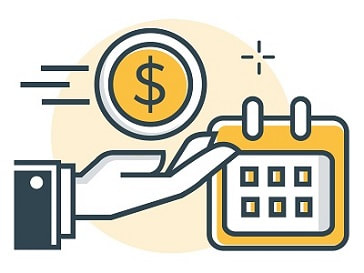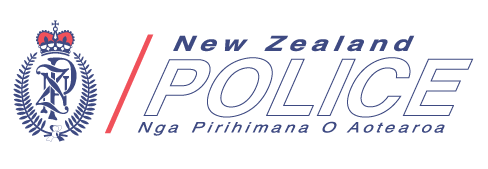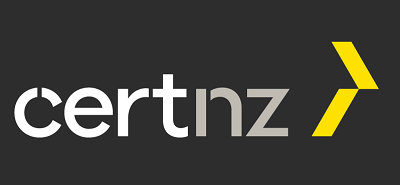Investment Scams Targeting New Zealanders - The Definitive Guide
Investment scams relentlessly appeal to hard-working individuals' desire for financial security and prosperity. This guide helps anyone who wants to protect themselves from investment scams.
Updated 8 April 2023
Summary
Warning - Investment Scams are Increasing
Summary
- Over 1 in 5 New Zealanders, aged 18 and above have been approached about a potential investment scam in the past per FMA research. Scams are a real threat, and any active investor should be aware of the threat facing them. As part of our research process at MoneyHub, we see scams being advertised every day.
- New Zealanders are fortunate to have numerous authorities, organisations and resources to help protect us from investment scams. However, if you get caught out, you often lose big, and there is no way of recouping your losses.
- The Financial Markets Authority hosts a list of companies that investors should avoid helping residents avoid potential scams and welcomes complaints from the community.
- This guide contains a helpful list of investment scams characteristics to be on the lookout for. If you believe something may be an investment scam, please contact our research team in confidence.
Warning - Investment Scams are Increasing
- We are aware New Zealanders are being targeted by scammers hoping to get their hands on money otherwise destined for legitimate term deposits.
- We believe the scams start as adverts on third-party websites (e.g. not MoneyHub) and entice people to enter their contact details. Then, phone calls are made to lure the money to fake New Zealand and/or overseas-based companies promising returns above those you'll receive from term deposits.
- MoneyHub Founder Christopher Walsh explains this problem in a video that lists what you can do to avoid scams altogether.
- Remember, if it sounds too good to be true, or you have a funny feeling or anything else, do not proceed. There are too many scams out there to risk it, as you'll see in the video:
Introduction to investment scams
Scammers like to target affluent English speaking countries, meaning New Zealanders are heavily targeted by overseas fraudsters looking to exploit people's weaknesses and aspirations. Most scams appeal to the victims’ desire for financial prosperity, romance, their trusting nature, and the preservation of reputation.
Financial services and the world wide web are two areas scammers prey on inexperienced and unsuspecting people. In recent years, personal finance and technology have converged, making it far easier for the average person to educate themselves by reading trusted resources like MoneyHub, Sorted and access a broad range of financial services from innovative businesses, such as digital banks such as Wise.
The downside is the internet has made it easier for perpetrators to solicit victims and deploy their deceptive schemes, often from different continents. The reality is, the barrier to making a professional website, registering a phone number and renting a virtual address to appear professional and legitimate is very low.
This guide explores the numerous investment scams targeting New Zealanders and people in other parts of the world. The purpose is to describe the hallmarks of different schemes, help you identify and steer clear of potential scams and understand how to report suspicions and crimes to relevant law enforcement agencies and watchdogs. Our guide covers:
Financial services and the world wide web are two areas scammers prey on inexperienced and unsuspecting people. In recent years, personal finance and technology have converged, making it far easier for the average person to educate themselves by reading trusted resources like MoneyHub, Sorted and access a broad range of financial services from innovative businesses, such as digital banks such as Wise.
The downside is the internet has made it easier for perpetrators to solicit victims and deploy their deceptive schemes, often from different continents. The reality is, the barrier to making a professional website, registering a phone number and renting a virtual address to appear professional and legitimate is very low.
This guide explores the numerous investment scams targeting New Zealanders and people in other parts of the world. The purpose is to describe the hallmarks of different schemes, help you identify and steer clear of potential scams and understand how to report suspicions and crimes to relevant law enforcement agencies and watchdogs. Our guide covers:
|
A message from MoneyHub Founder Christopher Walsh:
"Beware - Scams are all around us. New Zealand benefits from being small where people know each other, but this is also a quick way to run a scam. If you watch this video, you see helpful money advice from a man named Barry Kloogh. Scammers come in all shapes and sizes - Barry Kloogh ran an appalling fraud which saw him spend $15m+ of investor money on his lifestyle over 25 years. Investors were left ruined and even though Barry was sentenced to jail, very little of the money was recovered". "New Zealand has many Barry Klooghs. I believe right now there are dozens of Ponzi schemes operating around the country - they are difficult to detect although it seems obvious they were scams when the truth comes out. The problem is the internet (specifically YouTube, Instagram and Tiktok) introduce more scammers into the market. We've also seen startup companies raising money via crowdfunding platforms with incorrect financials to help attract new money to keep their business (and the lifestyle of the management) running". "New Zealanders are, generally, trusting and optimistic. Scammers know this and are targetting us without hesitation. Please be careful about any investment - if you have any doubt or don't understand it, don't do it." |
Top tips for avoiding investment scams
1. Do not invest in products you don’t understand.
As financial services transition to a digital format, it gets harder to know the products’ or sellers’ authenticity. Do not invest in products you don’t understand, and don’t invest with people or companies you can’t verify if they’re authorised or regulated to offer investment services to you. At MoneyHub, we’ve prepared dozens of personal finance and investment guides to help you learn about and understand these complex products.
2. Do not respond to unsolicited investment opportunities.
As more people discuss their personal finances on social networks like Facebook, Twitter and Reddit, it’s easy for scammers to identify who’s likely to respond to their fraudulent investment schemes. Regulated companies are highly unlikely to message you directly. In New Zealand, it’s illegal to sell investment products through an unsolicited message, email or call - if someone keeps calling about an investment offer or term deposit, they're best avoided.
3. Avoid overseas companies.
According to the FMA, financial service businesses without an office in New Zealand are harder to regulate and police as they’re based overseas, so it’s harder for the FMA to contact or investigate, even if the company is licensed and authorised in another country. It can be very difficult to recover money if an overseas investment turns out to be a scam. There is little recourse if things go wrong.
4. Don’t believe everything you read or see online.
Anyone can launch a website, pay to publish sponsored articles on established websites, publish ads on Facebook, create a Twitter account, and begin recommending investments online. Scammers typically use fake online personas to establish social proof to legitimise their fraudulent schemes.
5. Be suspicious of high-pressure sales tactics.
Regulated investment firms are prohibited from using high-pressure sales techniques on their customers and can be fined for misrepresenting products or selling to consumers products that could be considered inappropriate.
6. Only invest with companies listed in the Financial Service Providers Register (FSPR).
Any person or company providing financial services or advice must be registered on the Financial Service Providers Register (FSPR). Although there are a few exceptions, make sure you thoroughly check and verify why a company is exempt from being listed on the FSPR before proceeding with any financial service.
7. If something sounds too good to be true, it probably is.
The well-known idiom, if something sounds too good to be true, then it probably is, can be helpful when spotting an investment scam. If anyone is offering you an investment opportunity with zero risks, guaranteed profit, or very high earning potential such as doubling your money in one month, it is most likely a scam. Regulated investment service providers cannot guarantee a profit or distort risks.
As financial services transition to a digital format, it gets harder to know the products’ or sellers’ authenticity. Do not invest in products you don’t understand, and don’t invest with people or companies you can’t verify if they’re authorised or regulated to offer investment services to you. At MoneyHub, we’ve prepared dozens of personal finance and investment guides to help you learn about and understand these complex products.
2. Do not respond to unsolicited investment opportunities.
As more people discuss their personal finances on social networks like Facebook, Twitter and Reddit, it’s easy for scammers to identify who’s likely to respond to their fraudulent investment schemes. Regulated companies are highly unlikely to message you directly. In New Zealand, it’s illegal to sell investment products through an unsolicited message, email or call - if someone keeps calling about an investment offer or term deposit, they're best avoided.
3. Avoid overseas companies.
According to the FMA, financial service businesses without an office in New Zealand are harder to regulate and police as they’re based overseas, so it’s harder for the FMA to contact or investigate, even if the company is licensed and authorised in another country. It can be very difficult to recover money if an overseas investment turns out to be a scam. There is little recourse if things go wrong.
4. Don’t believe everything you read or see online.
Anyone can launch a website, pay to publish sponsored articles on established websites, publish ads on Facebook, create a Twitter account, and begin recommending investments online. Scammers typically use fake online personas to establish social proof to legitimise their fraudulent schemes.
5. Be suspicious of high-pressure sales tactics.
Regulated investment firms are prohibited from using high-pressure sales techniques on their customers and can be fined for misrepresenting products or selling to consumers products that could be considered inappropriate.
6. Only invest with companies listed in the Financial Service Providers Register (FSPR).
Any person or company providing financial services or advice must be registered on the Financial Service Providers Register (FSPR). Although there are a few exceptions, make sure you thoroughly check and verify why a company is exempt from being listed on the FSPR before proceeding with any financial service.
7. If something sounds too good to be true, it probably is.
The well-known idiom, if something sounds too good to be true, then it probably is, can be helpful when spotting an investment scam. If anyone is offering you an investment opportunity with zero risks, guaranteed profit, or very high earning potential such as doubling your money in one month, it is most likely a scam. Regulated investment service providers cannot guarantee a profit or distort risks.
Types of investment scams
Investment scams come in all shapes and sizes, and it can be hard to tell the difference between a scam and a bonafide company.
1. Term deposit scams
Term deposit scams involve fraudsters attempting to deceive investors by offering high-interest term deposit accounts that don't actually exist. These scams typically involve creating convincing websites, promotional materials, and even customer service teams to lure unsuspecting victims into investing their money. An example of this scam in play reported in the news can be found here. Remember - banks don't cold call you to invest your term deposits; scammers however do.
Christopher Walsh, Founder of MoneyHub, comments:
"We've encountered so many instances where fake term deposit schemes have promised incredibly high interest rates, which are too good to be true. As a result, unsuspecting investors are drawn in, hoping to make a significant return on their investment. Always remember to do thorough research and verify the legitimacy of any financial institution you plan to invest with".
In term deposit scams, criminals may use a reputable bank or financial institution's name and branding to make their scheme seem legitimate. They might even go as far as quoting real account numbers or referencing actual financial products. This is why it's crucial to double-check the source of any term deposit offer and confirm its authenticity with the financial institution involved.
Term deposit scams aim to steal your money by convincing you to transfer funds into the fake term deposit account. Once the transfer is complete, the scammers may disappear, leaving you no way to recover your money. To avoid falling victim to these scams, always verify the legitimacy of financial offers and institutions before investing your hard-earned money.
Imposter vs plausible claim
Christopher Walsh, Founder of MoneyHub, comments:
"We've encountered so many instances where fake term deposit schemes have promised incredibly high interest rates, which are too good to be true. As a result, unsuspecting investors are drawn in, hoping to make a significant return on their investment. Always remember to do thorough research and verify the legitimacy of any financial institution you plan to invest with".
In term deposit scams, criminals may use a reputable bank or financial institution's name and branding to make their scheme seem legitimate. They might even go as far as quoting real account numbers or referencing actual financial products. This is why it's crucial to double-check the source of any term deposit offer and confirm its authenticity with the financial institution involved.
Term deposit scams aim to steal your money by convincing you to transfer funds into the fake term deposit account. Once the transfer is complete, the scammers may disappear, leaving you no way to recover your money. To avoid falling victim to these scams, always verify the legitimacy of financial offers and institutions before investing your hard-earned money.
Imposter vs plausible claim
- Suspicious claim: We’re offering SBS, ANZ and Westpac term deposits for 9.55% p.a. which is much higher than what the banks offer, but you need to invest with us directly.
- Plausible claim: Term deposits from trusted banks as outlined here.
2. Imposter scams
Imposter scams try to deceive investors by imitating an established investment firm or falsely claiming to be licensed and authorised when they are not. Imposter scams come in many shapes and sizes, but as a generalisation, imposters will register domain names similar to the brand they’re copying and build an almost identical website to lure victims into investing in products that don’t exist.
Christopher Walsh, Founder of MoneyHub, comments:
"We have seen this recently with a trusted New Zealand fund manager and alerted them to the situation. We assume the idea was to take investor money by confusing people between the two websites. This problem exists, so please be careful".
Another approach is simply claiming a company is a regulated investment firm, perhaps even quoting a real license number belonging to an entirely different company. This is why you should always pay attention and verify the details of any company you intend to cooperate with for investing.
Imposter scams can go as far as providing a trading platform where you can trade. The scam is that the game is rigged, and they’ll ensure you lose your money. This approach makes victims feel they received the expected service but lost, allowing the imposter to encourage the victim to deposit and try again.
Christopher Walsh, Founder of MoneyHub, comments:
"We have seen this recently with a trusted New Zealand fund manager and alerted them to the situation. We assume the idea was to take investor money by confusing people between the two websites. This problem exists, so please be careful".
Another approach is simply claiming a company is a regulated investment firm, perhaps even quoting a real license number belonging to an entirely different company. This is why you should always pay attention and verify the details of any company you intend to cooperate with for investing.
Imposter scams can go as far as providing a trading platform where you can trade. The scam is that the game is rigged, and they’ll ensure you lose your money. This approach makes victims feel they received the expected service but lost, allowing the imposter to encourage the victim to deposit and try again.
Imposter vs plausible claim
- Suspicious claim: We’re licensed and authorised by the Financial Markets Authority. Call us on +359 2832 1004 or visit www.topinvestnz.biz
- Plausible claim: We’re licensed and authorised by the Financial Markets Authority. Call us on +64 9-832 1234 or visit www.topinvest.co.nz
3. Software packages, seminars and course scams
Everyone is looking for a shortcut to make money, and scammers take advantage of this desire. There is no such thing as a trading course, strategy or algorithm that works for everyone. That doesn’t mean to say there is no such thing as a consistently profitable trading system; there certainly are.
Many websites sell courses, ebooks, seminars, mentorship programs, trading systems and automated robots for hundreds, even thousands of dollars, claiming to be the answer to your troubles. Unfortunately, investing or trading financial markets is hard, and nothing can make it easy.
Although many high-quality products are available, none of them can work without practice, patience, dedication, and trial and error.
Christopher Walsh, Founder of MoneyHub, comments:
"New Zealanders often see YouTube adverts for trading courses, FX coaching and the likes - it's likely to be a scam because I believe if people were making so much money, they wouldn't be selling coaching courses. The scammers often show shiny things - cars, boats, watches, to make greedy people fall for the scam. Be careful".
Many websites sell courses, ebooks, seminars, mentorship programs, trading systems and automated robots for hundreds, even thousands of dollars, claiming to be the answer to your troubles. Unfortunately, investing or trading financial markets is hard, and nothing can make it easy.
Although many high-quality products are available, none of them can work without practice, patience, dedication, and trial and error.
Christopher Walsh, Founder of MoneyHub, comments:
"New Zealanders often see YouTube adverts for trading courses, FX coaching and the likes - it's likely to be a scam because I believe if people were making so much money, they wouldn't be selling coaching courses. The scammers often show shiny things - cars, boats, watches, to make greedy people fall for the scam. Be careful".
Misleading products vs plausible claims
- Suspicious claim: Start printing money in your sleep with this trading robot
- Plausible claim: If you follow the trading strategy rules carefully, this trading robot will help filter out bad trade ideas
4. Binary options scams
Binary options are perhaps the most toxic product in the financial markets. Although Binary Options are regulated in New Zealand, they are prohibited in the United States, Europe, Australia, Canada and other countries.
Binary options are incredibly simple to trade; therefore, they were sold to inexperienced investors who could not understand how easily they can be rigged. When trading binary options, you simply bet whether the price of an asset will be higher or lower than the current price. A binary options contract typically has a short duration, such as 60 seconds. If you lose, you lose your bet. If you win, you get approximately 80% profit.
Binary options platform operators can easily manipulate the result to ensure their clients lose when they want them to lose.
Christopher Walsh, Founder of MoneyHub, comments:
"If you're looking to invest, avoiding binary options is the best approach. It's a gamble, not a wealth creator".
Binary options are incredibly simple to trade; therefore, they were sold to inexperienced investors who could not understand how easily they can be rigged. When trading binary options, you simply bet whether the price of an asset will be higher or lower than the current price. A binary options contract typically has a short duration, such as 60 seconds. If you lose, you lose your bet. If you win, you get approximately 80% profit.
Binary options platform operators can easily manipulate the result to ensure their clients lose when they want them to lose.
Christopher Walsh, Founder of MoneyHub, comments:
"If you're looking to invest, avoiding binary options is the best approach. It's a gamble, not a wealth creator".
Binary Options scam vs plausible claim
- Suspicious claim: Trade binary options with a 50/50 chance of winning
- Plausible claim: A dynamic instrument to speculate on the price of financial markets
5. Cryptocurrency scams
The cryptocurrency sector is plagued with scams and fraud. Since the industry is largely unregulated, companies can essentially operate however they want with little oversight. Cryptocurrency scams rely on the novelty of blockchain technology, digital assets and ultimately, the naivety most people have towards digital assets.
You can certainly find Ponzi schemes, boiler rooms and imposter exchanges and wallets targeting cryptocurrency users. Other common types of scams are phishing scams, pump and dump schemes and ICO scams.
Since banks can refuse service to high-risk clients and query any suspicious transaction, criminals favour decentralised cryptocurrencies, such as Bitcoin, because they can’t be sanctioned, blocked or reversed.
To learn more about Bitcoin and cryptocurrency scams, read our dedicated Bitcoin and crypto scams in New Zealand guide.
You can certainly find Ponzi schemes, boiler rooms and imposter exchanges and wallets targeting cryptocurrency users. Other common types of scams are phishing scams, pump and dump schemes and ICO scams.
Since banks can refuse service to high-risk clients and query any suspicious transaction, criminals favour decentralised cryptocurrencies, such as Bitcoin, because they can’t be sanctioned, blocked or reversed.
To learn more about Bitcoin and cryptocurrency scams, read our dedicated Bitcoin and crypto scams in New Zealand guide.
ICO scam vs plausible claim
- Suspicious claim: Buy Wow Coin today, guaranteed to moon by the end of the year
- Plausible claim: Buy Wow Coin to get early access and reduced fees when using the platform
6. Asset recovery scam
After losing your money to one of the scams mentioned above, it can be tempting to find a way to claim that money back. Sadly, it’s very difficult for authorities in New Zealand to recover funds from criminals based overseas. It’s not uncommon for scammers to reach out to their previous victims to lure them with the opportunity of getting their money back and absolving them of the embarrassment of being duped. And that’s the premise of an asset recovery scam; a consultant, usually claiming to be a cybersecurity specialist, lawyer or private investigator, offering victims of a scam the possibility of recovering their stolen funds.
Victims cling to the idea of getting their stolen money back and agree to cooperate with the asset recovery company. These companies request a pre-payment or deposit, usually a few thousand dollars, which is often negligible for someone hoping to recover tens of thousands of dollars. The scam is that they have no intention of helping you to recover your money. The scammer may issue fake reports to give the illusion of progress, even asking for more money to progress the investigation. Ultimately the operator walks off with the deposit.
Christopher Walsh, Founder of MoneyHub, comments:
"Asset recovery companies are often linked to the original scammer; contact the police if you're a victim; do not reply to an unsolicited email".
Victims cling to the idea of getting their stolen money back and agree to cooperate with the asset recovery company. These companies request a pre-payment or deposit, usually a few thousand dollars, which is often negligible for someone hoping to recover tens of thousands of dollars. The scam is that they have no intention of helping you to recover your money. The scammer may issue fake reports to give the illusion of progress, even asking for more money to progress the investigation. Ultimately the operator walks off with the deposit.
Christopher Walsh, Founder of MoneyHub, comments:
"Asset recovery companies are often linked to the original scammer; contact the police if you're a victim; do not reply to an unsolicited email".
Asset recovery scam vs plausible claim
- Suspicious claim: Get your money back from scammers. We guarantee results
- Plausible claim: If you’ve paid by credit card, we can advise you on making a chargeback claim
6. Ponzi Schemes
A Ponzi scheme is a scheme that claims to be an investment program, such as a fund or similar managed investment, but is, in fact, a scam. Ponzi schemes use money from new investors to pay off older investors expecting returns from their investment. Investors are led to believe their profits are from legitimate investments. When new money stops coming, or too many participants want to withdraw their investment, that’s when Ponzi schemes get into trouble.
Ponzi schemes are very opaque, and operators are reluctant to share any information about how the scheme makes money. The telltale sign of a Ponzi scheme is their relentless focus on acquiring new participants to ensure older members get paid what they expect to prevent reputational harm.
The Ponzi scheme inherits its name from Charles Ponzi. Although he wasn’t the first to mastermind such a scheme, he gained notoriety for his plot that cost victims US$20 million in 1920, equivalent to NZ$382 million when adjusted for inflation and converted. The largest Ponzi scheme uncovered was operated by the infamous Bernie Madoff; prosecutors estimated the size of the fraud to be US$64.8 billion.
Ponzi schemes are a type of fraud and illegal in New Zealand and most other countries worldwide. There have been several recent examples:
Ponzi scheme vs plausible investment scheme
Ponzi schemes are very opaque, and operators are reluctant to share any information about how the scheme makes money. The telltale sign of a Ponzi scheme is their relentless focus on acquiring new participants to ensure older members get paid what they expect to prevent reputational harm.
The Ponzi scheme inherits its name from Charles Ponzi. Although he wasn’t the first to mastermind such a scheme, he gained notoriety for his plot that cost victims US$20 million in 1920, equivalent to NZ$382 million when adjusted for inflation and converted. The largest Ponzi scheme uncovered was operated by the infamous Bernie Madoff; prosecutors estimated the size of the fraud to be US$64.8 billion.
Ponzi schemes are a type of fraud and illegal in New Zealand and most other countries worldwide. There have been several recent examples:
- Ross Asset Management/David Ross - this was a $100m+ Ponzi scheme and one of the most famous in New Zealand.
- Barry Kloogh - a Dunedin man who stole $15m+ from his investors and spent the money on his lifestyle.
- Jacqui Bradley - an Auckland woman who stole $15m+ from her investors and spent it on piano lessons, school fees, overseas trips and lifestyle needs.
Ponzi scheme vs plausible investment scheme
- Suspicious claim: Invest $50,000 and earn guaranteed monthly returns of 20%. Invest $100,000 and earn 50% monthly
- Plausible claim: We provide conservative and aggressive investment strategies depending on your circumstances and objectives. We target a return of 2.50% p.a. above the benchmark.
Reporting investment scams in New Zealand
In the unfortunate event that you have become a victim of an investment scam, don’t be ashamed. Unfortunately, it happens to millions of people around the world yearly. According to the FMA’s investor experience of fraud and scams report, 22% of New Zealanders claim to have been approached by a potential investment scam in the past.
Despite thousands of reported cases in New Zealand each year, authorities believe those numbers are underreported. At the start of 2021, The NZ Financial Markets Authority’s director of regulation, Liam Mason, warned that investment scams targeting Chinese New Zealanders are under-reported. He noted scammers warned their victims they would implicate themselves and fall into trouble with authorities if they reported the crime.
Fortunately, New Zealand makes it a priority to protect citizens from organised crime and online fraud. There are several authorities providing advice and investigating complaints.
Despite thousands of reported cases in New Zealand each year, authorities believe those numbers are underreported. At the start of 2021, The NZ Financial Markets Authority’s director of regulation, Liam Mason, warned that investment scams targeting Chinese New Zealanders are under-reported. He noted scammers warned their victims they would implicate themselves and fall into trouble with authorities if they reported the crime.
Fortunately, New Zealand makes it a priority to protect citizens from organised crime and online fraud. There are several authorities providing advice and investigating complaints.
Financial Markets Authority (FMA)The Financial Markets Authority is responsible for regulating New Zealand’s financial markets. The FMA must license anyone based in New Zealand offering you financial services or advice. For example, forex and CFD brokers, financial advisors, investment scheme managers, investment managers or anyone who takes custody of your money and isn’t a lawyer or your employer. If anyone tells you they don’t need to be authorised, do extra due diligence or simply avoid this provider.
The FMA’s warnings and alerts list is a list of companies that investors should avoid. |
New Zealand PoliceLike any other crime, you can report a financial crime to the New Zealand Police. The Police offers advice concerning investment, financial and internet crime and recommends reporting those crimes the same way you report any other crime. Remember that 111 is only for emergencies when immediate response is required, and 105 is the non-emergency number.
|
NetsafeNetsafe is an independent, non-profit online safety organisation founded in 1998 to help New Zealanders use the internet safely. Netsafe promotes the safe use of the internet and online services, particularly monitoring scams, bullying, abuse, privacy, viruses and misinformation.
You can report online incidents to Netsafe via an online form, meaning you don’t need to wait for a crime to happen before submitting a report. |
Computer Emergency Response Team New Zealand (CERT NZ)In New Zealand, CERT NZ is responsible for supporting businesses, organisations and individuals affected by or vulnerable to cybersecurity incidents. Cybercrime is often associated with hacking and computer viruses, but it consists of any crime taking place online.
CERT NZ tracks the cybersecurity threat landscape in New Zealand and publishes quarterly reports. If you think you’ve been approached by a scammer or someone has been trying to solicit suspicious services to you, you can report an issue to CERT by completing an online form. |
Useful resources and contracts
If you’ve been the victim of an investment scam or concerned you might be in the midst of one, please view the following resources:
If you’ve been the victim of an investment scam or concerned you might be in the midst of one, please view the following resources:
- Use the Consumer Protection "Could this be a scam?" worksheet to help understand if you or someone you know is being scammed.
- Review the FMA’s warnings and alerts list or the International Investor of Securities Commissions Investor Alerts Portal, which consolidates warnings from numerous regulators worldwide.
- Contact Victim Support on 0800 842 846 or visit their website. They can provide free emotional and practical support and information to victims.
- Contact the FMA on 0800 434 566 or visit their website to share your concerns about a company or seek their advice. You won’t get into trouble for reporting something that turns out to be legitimate.
- The Commerce Commission’s pyramid selling schemes and referral selling factsheet.
- CERT NZ’s guide to verifying the authenticity of a website.
Frequently asked questions
Will I get into trouble for reporting an investment scam?
No. You will not get into trouble for reporting an investment scam. Perpetrators sometimes tell their victims that they will incriminate themselves if they report the scam to authorities, but this isn’t true. It’s one of many lies they tell to manipulate their victims. In New Zealand, we’re fortunate to have numerous authorities preventing and investigating fraud and scams.
Will I get my money back if I am the victim of an investment scam?
Whether you can get your money back from an investment scam depends on the circumstances. If an overseas company or person has scammed you, the chances are very slim, but that shouldn’t deter you from reporting it to authorities. Even if you can’t get your money back, you can help stop and even catch the criminals. Suppose a New Zealand-based company is responsible for scamming you. In that case, the likelihood of getting your money back is higher, especially if that company is a member of a dispute resolution scheme.
If I only deal with licensed New Zealand investment companies, am I safe?
Unfortunately no. Just because a company or person is licensed doesn’t mean they can’t break the law. Consider your driving license; it doesn’t stop you from speeding or going through a red light. A license only proves that they passed the licensing requirements at the time they applied. Although licensed financial services providers are subject to inspections and audits, nothing is foolproof, and people can change their intentions at any time.
What’s the difference between a Ponzi scheme and a pyramid scheme?
The main difference between a Ponzi scheme and a pyramid scheme is that a Ponzi scheme usually requires investment from its victims, with the promise of passive returns from the investment profits. A pyramid scheme usually requires victims to actively participate in the sales process and bring in new participants. How much a victim makes depends on how many new people they recruit to join the scam.
Related Guides and Media
- FMA Investment Scams and Warnings
- Bitcoin and Crypto Scams
- Ashutosh Sharma (SellMyGood.com Coin) - an exotic cryptocurrency venture that appeared to inflate the website's success by a factor of 10,000 before being shut down by the FMA
- David Ross (RAM Investments) - a convicted fraudster, now released from prison.










